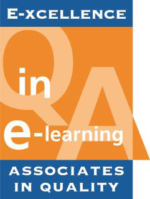Request Information
Master of Public Health (MPH)
Duration:
3 Semesters
Qualification Awarded:
Master of Public Health (MPH)
Language:
English
Mode of Study:
E-Learning/Distance Learning (Online)
Accelerate your management knowledge with skills for tackling current and emerging global public health challenges: climate change, armed conflict, forced migration, as well as pandemics. Public Health is defined by the Faculty of Public Health, UK as “The science and art of promoting and protecting health and well-being, preventing ill-health and prolonging life through the organised efforts of society”. The MPH curriculum is mapped according to the Faculty of Public Health Diplomate Examination (DFPH). It covers the main domains of Public Health Practice (Health Protection, Health Improvement, Health Services Provision) and offers the opportunity to specialise in a broad range of public health topics. The programme places a strong emphasis on global aspects of public health, like the epidemiology and prevention of both non-communicable and infectious conditions. There is a focus on current issues in both developed and developing countries for preparedness in disaster risk reduction, prevention, response and recovery. A unique feature of our MPH programme is its international orientation: the programme is part of a Medical School with faculty, teaching hospitals and students from across the globe. “This Master of Public Health, emphasizes on the concept of “One Health”, recognizing the interconnection between humans, animals and their environments. It is only through this recognition that we can fully equip students with the necessary knowledge and competencies so that they can contribute to efforts towards meeting the Sustainable Development Goal of “Good Health”.” “Students interact with their mentor and with each other throughout the courses for a holistic understanding of the material. Our role as mentors is to support students in their student journey to find an appropriate work-life-balance. As a mentor for the MPH programme, I am always encouraged to hear of students’ success in developing skills and improving knowledge for growth in their current profession.” “In an era of rapid development and population growth, it is essential that public health is a major priority for all governments globally, from the most developed countries to the least.” Public Health refers to all organised measures aimed at preventing disease, promoting health and prolonging healthy life. Its aim is to ensure a high standard of living and well-being for individuals and societies globally. The University of Nicosia’s Master of Public Health (MPH) programme covers the main domains of Public Health Practice (Health Protection, Health Improvement, Health Services Provision) and offers the opportunity to specialise in a broad range of public health topics. The programme places a strong emphasis on global aspects of public health, like the epidemiology and prevention of both non-communicable and infectious conditions. There is a focus on important public health issues in both developed and developing countries for preparedness in disaster risk reduction, prevention, response and recovery. The curriculum is based on a dynamic approach, with continuous updating to address new and emerging issues threatening population health: climate change, armed conflict, forced migration, pandemics and more. This programme has been carefully designed according to the standards of the UK Faculty of Public Health. A unique feature of our MPH programme is its international orientation: the programme is part of a Medical School with faculty, teaching hospitals and students from across the globe. The MPH programme curriculum has been designed with the DFPH (formely the Part A exam) in mind, and the learning outcomes correlate to a large extent with those of that exam. Students who pass the DFPH exam are demonstrating a professional level of knowledge and understanding of the scientific basis of public health. Success in the DFPH leads to election into Diplomate Membership of the Faculty of Public Health. Thanks to our exciting approach to learning, with a curriculum constantly updated to focus on new issues in global public health, graduates are prepared to tackle real-world challenges. Upon graduation, they will be ready to work in the public sector at local, national and international health agencies. This course has provided our alumni with greater opportunities in non-governmental organisations, charities as well as private sector career work in consulting firms, pharmaceutical industry, start-ups and policy research. With the ability to specialise during your studies, students have multiple pathways for success. The strong emphasis on innovation and technological advancements enables graduates to provide vision and initiate strategic change in healthcare organisations. The main aims of the programme are to enable students to: The specific objectives of the programme are to: Graduates of the MPH programme will: The programme is conducted completely online, with three to four courses delivered over 14 weeks each semester on an e-Learning Environment (Moodle), which includes multiple embedded synchronous and asynchronous learning activities, such as webinars, online chats, discussion fora and wikis. In addition, recorded lectures are designed to enhance student interactivity and active learning by including engaging slides with clickable tabs, interactive quizzes, drag-and-drop activities, matching activities and opinion polls. Our programme follows standardised and validated pedagogical approaches, ensuring constant tutor-student interaction (webinars, online chats, discussion fora), student to student interaction (online chats, discussion fora, wikis), and student-material interaction (recorded lectures, additional resources). To realise our vision of serving as a centre of excellence in Public Health education, we have brought together experts from around the world. Our faculty have extensive experience teaching, working and conducting research in Public Health, and each course is taught by a leader in their field. This group of highly-acclaimed faculty, delivering the course, also bring their international field work at a global level to the forefront (e.g. Africa Ebola outbreak crisis management). In addition, this programme offers active collaborations with renowned academic institutions around the world and key Non-Governmental Organizations, working on global public health. Our University has been a pioneer in online/distance learning education in Europe, supporting both its own degree programmes, as well as those of its joint degree partners. UNIC is the first university in the European Union to be awarded a 5-Star QS rating for Online/Distance Learning by the QS Intelligence Unit and the first university globally to receive triple accreditation for its online learning quality. This makes UNIC one of the 14 universities in the world to date that have been awarded a 5-Star rating. An integral part of our approach to the learning design of these courses is our commitment to help our students develop higher-order skills of critical analysis, reflection, and problem-solving. We also support our learners in building knowledge collaboratively and engaging in social learning. As a testament to the quality of our online programmes, our University has been awarded the highest accolades for e-learning and distance learning education excellence. UNIC continues to strive for excellence globally. The 2021 Times Higher Education (THE) University Impact Rankings, ranked the University of Nicosia (UNIC) as the number 32 university in the world in the core area of Quality Education, and among the top 301-400 universities globally in terms of its overall social and economic impact. The programme is divided into three semesters, comprising three or four courses each (5-10 ECTS per course). Core courses are taught in semesters 1 and 2 and are compulsory. After completing the core programme, students have the opportunity to choose one of two paths in semester 3. In the electives path, students have to take Research Methodology in Public Health (MPH-590) and choose two (out of six) elective courses. Alternatively, students can choose to follow a more research-oriented path by selecting Research Methodology in Public Health (MPH-590) and Research Project (MPH-596), where they will be expected to engage in research by performing their own study on a relevant public health topic. The following programme structure is based on prospective delivery from 2024-2025. The programme is subject to continuous evaluation and improvement, in consultation with students and lecturers, and in accordance with the regulations and guidelines of the Cyprus Agency of Quality Assurance and Accreditation in Higher Education, and therefore may be subject to additional changes. *Students should note that the availability of each of the elective courses offered in a given academic year will be based on student numbers 1.A Bachelor’s degree from an institution recognised in the country where it operates. A degree in medicine, health sciences, biological sciences, social sciences or environmental sciences is an advantage. 2.One reference letter: Either academic or professional. 3. English Language Requirements: 6.5 overall in the IELTS (with 6.0 in all other elements), Or: 79 in TOEFL iBT Or: grade 5 in the GCSE (or B with the old grading system), Or: a score of 5 in English in the International Baccalaureate Standard Level (SL), Or: a score of 8 in English in the European Baccalaureate. Students whose native language is English and who originate from the UK, Ireland, USA, Australia, New Zealand and Canada (provided that language of instruction at school/ undergraduate/ postgraduate level was English), are exempt from this requirement. Third country nationals who have completed a degree, taught in English, in any of the aforementioned countries, will be required to submit evidence of English language certification as submitted for admission to that degree, to be exempt from the above. 4. A personal statement describing (i) your past educational, professional, or other experience with a focus on that which is relevant to Public Health (if any); (ii) how this degree would support your personal or professional aspirations; and (iii) your experience and ability to work independently as well as in a team, to prioritise tasks, and to track the progress of your work in order to complete the educational requirements of this Distance Learning degree. (maximum 800 words)” Students must complete 90 ECTS and all programme requirements. A minimum cumulative grade point average (CPA) of 2.0 is required. Thus, although a ‘D-’ is a Pass grade, in order to achieve a CPA of 2.0 an average grade of ‘C’ is required. The Master of Public Health programme aims to improve global health. All students applying for entry in Fall 2025, will be awarded a 20% scholarship reducing tuition to €9,648 from €12,060 for the Master of Public Health. Further scholarships can be awarded with the submission of a scholarship application based on demonstrated financial need and can cover up to 30% of tuition costs, with instalment plans available. Our Admissions Advisers can provide more details: [email protected] Type: Need-based Students with financial need are eligible to apply for this need-based scholarship award. In order to be considered for this scholarship, in addition to the scholarship application, students need to provide evidence of financial need. Earn a Master of Public Health (MPH) Online
The Health of Humans is Connected to the Health of Animals and the Environment, in the Concept of One Health.

Programme Overview
The Faculty of Public Health Diplomate Examination (DFPH)

Student Outcomes
Programme’s aims and objectives
Intended learning outcomes
Innovative and Modern Curriculum
Internationally Renowned Faculty
Online Education at UNIC
The First University in the EU to be awarded 5 QS Stars in Distance Education

Programme Structure
Semester Breakdown
Semester 1
(30 ECTS, all courses required)
Course code/Title
Description
MPH-511
Principles of Epidemiology and Public Health
MPH-514
Health Protection: Safeguarding Wellbeing in Populations
MPH-515
Health Promotion: Maintaining Wellbeing in Populations
MPH-521
Epidemiology and Prevention of Non-communicable and Infectious Diseases in a Global Context
Semester 2
(30 ECTS, all courses required)
Course code/Title
Description
MPH-512
Applied Statistics for Epidemiology and Public Health
MPH-522
Health Policy, Management and Leadership
MPH-523
Health Economics in the Context of Health Services and Systems: Global Perspectives
Semester 3
(30 ECTS, Students are required to choose from the two options offered)
Option 1
Course code/Title
Description
MPH-590
Research Methodology in Public Health (Required)
MPH-596
Master’s Thesis (Research Project) (Required)
Option 2
Course code/Title
Description
MPH-590
Research Methodology in Public Health (Required)
Plus two elective courses from the following:
MPH-531
Environmental and Occupational Health
MPH-532
Health Inequality within and between countries
MPH-533
Population Ageing and Health
MPH-534
Public Health Nutrition
MPH-535
Social and Behavioural Dimensions of Health
MPH-536
Ethical and Legal Dimensions of Public Health
Admission Requirements
Graduation
Tuition
Scholarships available
One Health Scholars
Scholarship Terms






